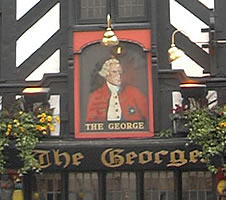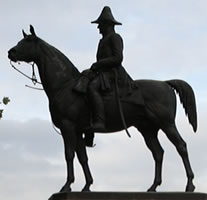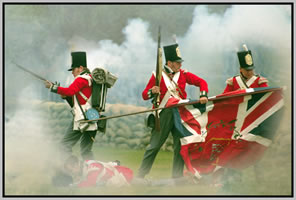Study, work or travel in the UK. British
culture and life.


The Georgian era in Britain (1714-1837)
|
|
Study, work or travel in the UK. British
culture and life.
|
|
||
|
|
|
|
||
 |
||||
|
|
|
|
||
|
|
|
|||
 |
||||
|
The Georgian era in Britain (1714-1837)
|
||||
| Ruling family | King/Queen | Dates |
| HOUSE OF HANOVER |
George I |
1714-1727 |
| George II | 1727-1760 | |
| George III | 1760-1820 | |
| George IV | 1820-1830 | |
| William IV | 1830-1837 |
| Year | Prime Minister | Party |
| 1721 | Robert Walpole | Whig |
| 1742 | Spencer Compton | Whig |
| 1743 | Henry Pelham | Whig |
| 1754 | Thomas Pelham-Holles | Whig |
| 1756 | William Cavendish | Whig |
| 1757 | Thomas Pelham-Holles | Whig |
| 1762 | John Stuart | Tory |
| 1763 | George Grenville | Whig |
| 1765 | Charles Watson-Wentworth | Whig |
| 1766 | William Pitt the Elder | Whig |
| 1767 | Augustus Fitzroy | Whig |
| 1770 | Frederick North | Tory |
| 1782 | Charles Watson-Wentworth | Whig |
| 1782 | William FitzMaurice | Whig |
| 1783 | William Bentinck | Tory |
| 1783 | William Pitt the Younger | Tory |
| 1801 | Henry Addington | Tory |
| 1804 | William Pitt the Younger | Tory |
| 1806 | William Grenville | Whig |
| 1807 | William Bentinck | Tory |
| 1809 | Spencer Perceval | Tory |
| 1812 | Robert Jenkinson | Tory |
| 1827 | George Canning | Tory |
| 1827 | Frederick Robinson | Tory |
| 1828 | Arthur Wellesley (Duke of Wellington) | Tory |
| 1830 | Charles Grey (Earl Grey) | Whig |
| 1834 | William Lamb | Whig |
| 1834 | Arthur Wellesley (Duke of Wellington) | Tory |
| 1834 | Robert Peel | Tory |
| 1835 | William Lamb | Whig |
 The George pub Aldwych, London |
 Wellington Monument, Hyde Park Corner, London |
 English redcoats in battle (Napoleonic Association) |
 |
The
Georgians 1714-1837 |
 |
Life
in Georgian Britain Publisher: Pitkin Unichrome Date: May 2000 |
 |
Georgian
Cookery: Recipes and History Author: Jennifer Stead Publisher: English Heritage Publications Date: November 2003 |
|
|
|